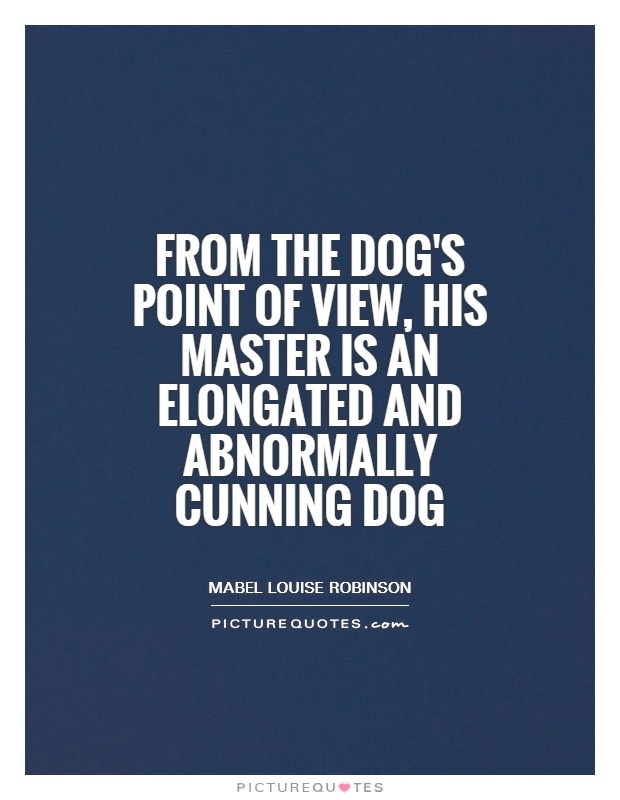From the dog's point of view, his master is an elongated and abnormally cunning dog

From the dog's point of view, his master is an elongated and abnormally cunning dog
In Mabel Louise Robinson's novel "The Dog's Point of View," the concept of a dog viewing his master as an elongated and abnormally cunning dog is explored in a unique and thought-provoking way. The novel delves into the complex relationship between humans and their canine companions, shedding light on the ways in which dogs perceive and interact with their human counterparts.From the dog's perspective, his master is not just a human but rather a larger, more intelligent version of himself. The dog sees his master as a leader, a provider, and a protector, much like a pack leader in the wild. The master's ability to communicate, problem-solve, and manipulate his environment is seen by the dog as a form of cunning that sets him apart from other dogs.
The dog's view of his master as an elongated and abnormally cunning dog speaks to the deep bond and connection that exists between humans and dogs. Dogs have been domesticated for thousands of years, and as a result, they have developed a keen understanding of human behavior and emotions. They are able to read their master's body language, tone of voice, and facial expressions, allowing them to form a strong emotional bond with their human companions.












 Friendship Quotes
Friendship Quotes Love Quotes
Love Quotes Life Quotes
Life Quotes Funny Quotes
Funny Quotes Motivational Quotes
Motivational Quotes Inspirational Quotes
Inspirational Quotes